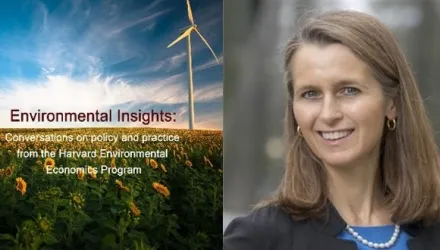Note on COP-24
This paper will serve as the basis for a panel event conducted by the Harvard Project on Climate Agreements at COP-24 in Katowice, Poland. Time and location below, and more information here:
Elaborating and Implementing Article 6 of the Paris Agreement
Hosted by the Harvard Project on Climate Agreements and the Enel Foundation
Tuesday, December 11, 2018; 15:00 – 16:30
Location: Side Event Room “Wisla”
Abstract
Parties to the Paris Agreement can engage in voluntary cooperation and use internationally transferred mitigation outcomes towards their national climate pledges. Doing so promises to lower the cost of achieving agreed climate objectives, which can, in turn, allow Parties to increase their mitigation efforts with given resources. Lower costs do not automatically translate into greater climate ambition, however. Transfers that involve questionable mitigation outcomes can effectively increase overall emissions, affirming the need for a sound regulatory framework. As Parties negotiate guidance on the implementation of cooperative approaches under Article 6.2 of the Paris Agreement, they are therefore considering governance options to secure environmental integrity and address the question of overall climate ambition. Drawing on an analytical framework that incorporates economic theory and deliberative jurisprudence, practical case studies, and treaty interpretation, this Working Paper maps central positions of actors in the negotiations and evaluates relevant options included in the latest textual proposal.
It concludes with a set of recommendations on how operational guidance can balance necessary safeguards for climate ambition with flexibility to contain transaction costs and allow for greater participation. Recalling the delicate equilibrium set out in the Paris Agreement, the Working Paper argues that neither over- nor underregulation will lead to efficient outcomes, or indeed be conducive to greater ambition. Theory and experience with carbon markets lend support to specific recommendations for guidance on Article 6.2, including design elements that should be included or avoided. Also, the Working Paper cautions against burdening the deliberation of primarily technical questions that need to be addressed in operational guidance with primarily political questions about ambition under the broader climate regime. Restrictions on the use of cooperative approaches should not seek to correct domestic choices or supplant political decisions on the appropriate form and ambition of national climate pledges under the Paris Agreement, which — where dealt with multilaterally — form part of a different negotiating agenda
Acknowledgement
The Harvard Project on Climate Agreements is grateful to the Enel Foundation and the Enel Endowment for Environmental Economics at Harvard University for generous support of a series of annual discussion papers on climate-change policy and related topics in energy policy, of which this paper is the eighth.
Author Affiliations
Michael A. Mehling
Massachusetts Institute of Technology
Mehling, Michael A. “Governing Cooperative Approaches under the Paris Agreement.” November 2018




